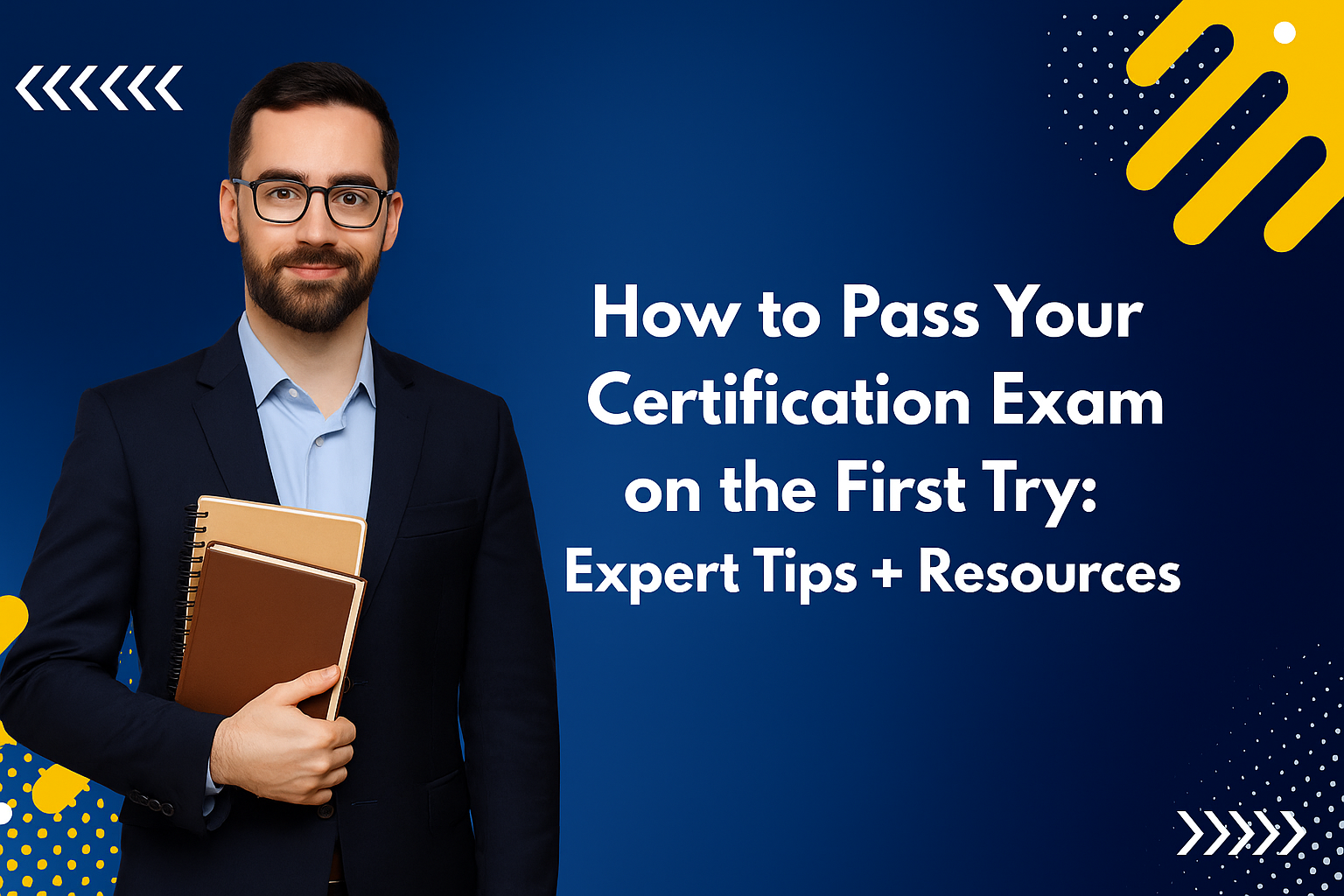In today’s competitive job market, getting a professional certification is a fantastic way to show off your skills and move up in your career. Whether you’re in IT, healthcare, project management, or finance, these certifications can open doors to better jobs and higher pay. But passing these exams, especially on your first try, takes a good plan, smart study habits, and the right resources. This guide will give you expert advice and essential resources to help you ace it the first time.
1. Know Your Enemy: Understand the Exam Format and What’s Expected
Before you dive into studying, you need to know exactly what kind of exam you’re facing. Every certification body provides an exam guide or blueprint that details:
- The number of questions
- Question types (multiple choice, performance based, simulations)
- Time limits
- Passing score
- Key topics or areas covered
Go over this document carefully. Highlight each section and figure out which topics are most important. Understanding the exam’s structure will help you use your study time wisely and feel less stressed on exam day.
2. Craft a Study Plan and Stick With It
A detailed and realistic study plan is crucial for success. Start by figuring out what you already know and where you need to improve. Then, break down your preparation into manageable chunks:
- Set daily or weekly goals.
- Schedule dedicated study hours and avoid distractions.
- Use digital calendars or apps like Notion, Trello, or Google Calendar to track your progress.
- Don’t forget to include time for reviewing and taking practice exams.
Being consistent with your study plan is key to remembering information in the long run.
3. Rely on Official and Trustworthy Study Materials
The quality of your study materials can seriously affect your performance. Always start with the official resources provided by the certification authority. These include:
- Official study guides
- Sample questions
- Instructor led or self paced training courses
Beyond the official stuff, look for reputable third party resources like:
- Udemy
- LinkedIn Learning
- Pluralsight
- Coursera
- Exam prep books from well known publishers (e.g., Sybex, Pearson)
Avoid “brain dumps” – they often violate exam rules and contain outdated or incorrect information.
4. Take Practice Tests Regularly
Practice exams are incredibly helpful for several reasons:
- They get you familiar with the question format.
- They show you where you’re strong and where you’re weak.
- They help you improve your time management skills.
Use platforms like MeasureUp, Whizlabs, or Boson to get a feel for the real test environment. Aim to consistently score well above the passing mark (say, 80–90%) before you schedule your actual exam. After each practice test, review your wrong answers to understand why the correct choices are correct.
5. Connect with Online Communities and Forums
Sometimes, the best advice comes from people who have already been through the process. Join forums and study groups to connect with other candidates:
- Reddit (e.g., r/ITCertifications, r/CompTIA)
- TechExams.net
- Facebook or LinkedIn groups
- Discord servers dedicated to your specific certification
These communities can offer valuable insights, motivation, and access to extra resources like study notes, flashcards, and exam strategies.
6. Learn by Teaching and Explaining
One of the most effective ways to solidify what you’ve learned is to teach it to someone else. Try explaining difficult concepts to a friend, or even just out loud to yourself. This technique, often called the Feynman Technique, helps you spot gaps in your understanding and truly remember information.
You can also deepen your grasp of the subject by writing blog posts, recording short explanation videos, or contributing to forum discussions.
7. Prioritize Your Mental and Physical Health
Exam preparation is a marathon, not a sprint. Your brain works best when you take care of your body:
- Get 7–8 hours of sleep each night.
- Eat nutritious meals and stay hydrated.
- Take regular breaks using techniques like the Pomodoro method.
- Engage in light exercise or mindfulness to reduce stress.
Burnout can derail your efforts. Make your health a priority to stay focused and energetic.
8. Simulate the Real Exam Experience
Before the big day, create a mock test environment:
- Find a quiet place.
- Strictly time yourself.
- Eliminate interruptions and distractions.
This dry run helps prepare your mind for the pressure of the actual exam and builds your confidence.
9. Understand Exam Policies and Logistics
Carefully read the exam rules and procedures. Make sure you know:
- What identification you’ll need
- What materials are allowed or prohibited
- How breaks are handled
- How to reschedule or cancel your exam
If your exam is online, test your computer and internet connection beforehand. Download any necessary software (like Pearson VUE’s OnVUE) and choose a distraction free location.
10. Stay Positive and Trust Your Preparation
As exam day approaches, maintain a positive outlook. Avoid last minute cramming. Instead, do some light review, relax, and visualize yourself succeeding. Confidence is crucial in high stakes exams. If you’ve followed a solid study plan, trust that you’re ready.
Recommended Resources by Category
General Certification Platforms:
- CertBolt – Practice tests and study guides
- Exam Topics – Community based Q&A
- Skillsoft/Percipio – Premium enterprise learning
IT Certifications:
- CompTIA CertMaster
- Cisco NetAcad
- Microsoft Learn
- AWS Skill Builder
Project Management:
- PMI’s Authorized PMP Prep
- Rita Mulcahy’s PMP Exam Prep
Healthcare & Nursing:
- NurseAchieve – NCLEX practice
- ATI Testing – Nursing prep platform
Finance & Accounting:
- Becker CPA Review
- Wiley CFA Review

